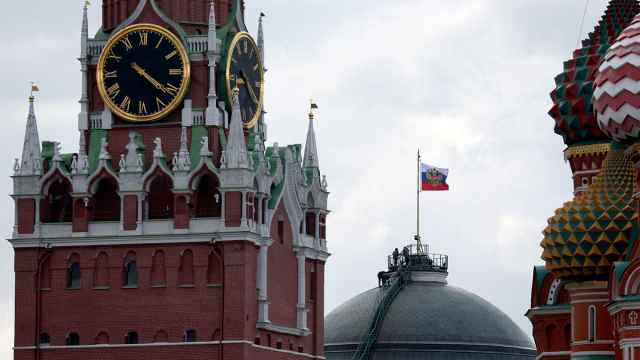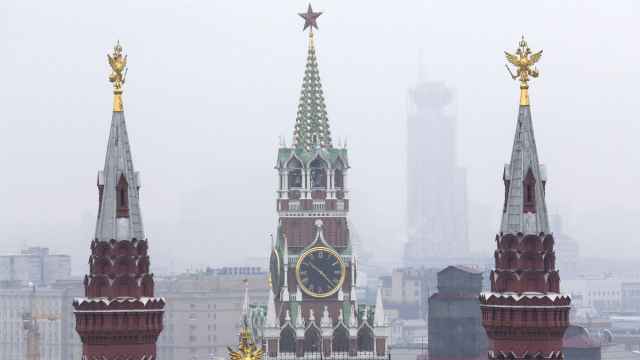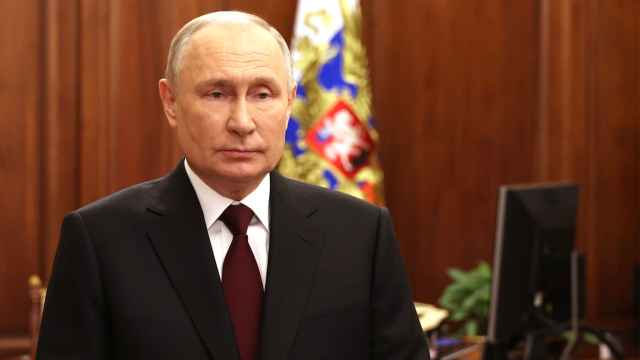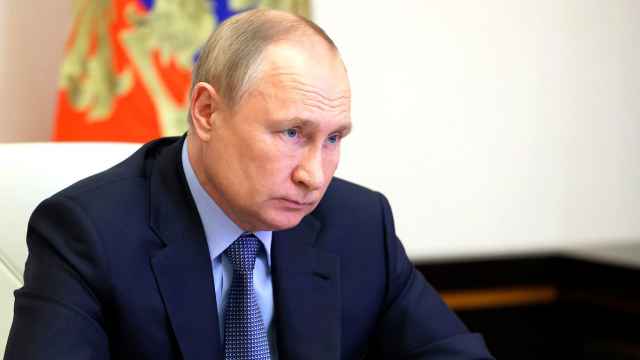The biggest disappointment of the allied conference held at the U.S. military base in Ramstein, Germany on Friday was the failure of the negotiators to agree on delivering Leopard 2 tanks to Ukraine. While an eventual tank transfer was not ruled out altogether, it wasn't agreed upon either — the can was simply kicked down the road again as Ukrainian bodies continue to pile up.
The international community seems to have understood that Ukraine must win this war, or at least that Putin cannot be allowed to emerge victorious. This understanding is fuelled not so much by sympathy for Ukraine, but rather by the realization that Putin’s regime is a threat to the whole of Western civilization. If Putin attains his goal of destroying Ukraine he will not be satisfied but will continue "reclaiming what's his." That is, the world has understood that no amount of appeasement will ever make peaceful coexistence with Vladimir Putin possible.
And yet a decisive victory for Ukraine seems to scare the West, and their fears aren't entirely groundless as Moscow losing the war would almost certainly provoke a profound political crisis within Russia.
In that scenario, Putin, who lacks electoral support and enjoys all the legitimacy of a mafia boss, would lose his authority over his own elite completely — a process that has already been set in motion — and with it, his power. This wouldn't necessarily bother the West as it'd be much easier to deal with his successor rather than with Putin himself. But there's no guarantee that Putin’s withdrawal from power would be a peaceful one, and how violent and bloody the transition period would be is anybody’s guess. It's the potential this wave of violence has to spill over into Europe that preoccupies policymakers in the West.
But the principal worry for Western leaders is that a cornered Putin might start a nuclear war. While this fear is now less pronounced than before — estimates of both Russia’s nuclear capacity and Putin’s ability to ensure such an insane order is followed have changed — the risk of nuclear Armageddon cannot simply be swept under the carpet by responsible world leaders.
These high stakes are why some in the West find the scenario of the war in Ukraine dragging on for many years more attractive than a decisive Ukrainian victory, the idea being that a protracted war would weaken Putin economically, militarily, and politically, thus lessening the danger posed by his regime.
The West's thinking goes that while its goals might not be reached as quickly as in the decisive Ukrainian victory scenario, the protracted war scenario would most likely minimize the risks for Europe, despite the countless extra deaths that would ensue. While Western politicians inevitably agree that these deaths are sad, they won't see them as sufficiently tragic for them to eclipse their own national interests and their next re-election campaign.
This strategy is not only immoral, given that the longer the war goes on the more people will die, it is also erroneous, having its root in a misunderstanding of Putin’s regime. A senseless, protracted war will, of course, weaken Putin, but it will not force him to capitulate or relinquish power, be it of his own will or by force.
As the death toll rises and quality-of-life plummets, the Russian populace will grow more and more disillusioned, but as long as Putin has the forces to crack down on protests and a readiness to machine-gun his civilian critics, the population will continue to be denied any opportunity to influence government policy. One can hope, of course, that Putin's forces might refuse to obey orders, but that certainly can't be counted upon.
No matter the war's cost to Russia's economy, the country's armament plants will continue to function — Putin would rather have his people starve than stop producing weapons. While sanctions will ensure that any weaponry produced in Russia will be of low quality, even then its destructive power cannot be dismissed. Putin's elite will only revolt if everything comes crashing down all at once — slow deterioration alone, as we can clearly observe now, is insufficient to force them into action.
The only thing Putin knows how to do is to ensure his own security and so we can expect him to remain in power by imposing permanent martial law on Russia, ensuring its stability despite leaving it poor, backward, and even more aggressive than it is now. Sooner or later, the West’s main fear will come to pass, however – a direct military conflict between Russia and NATO.
The protracted conflict option cannot, therefore, be successful. As for the risks associated with a swift Ukrainian victory — the more decisive the victory, the more insignificant they will become since a decisive victory would reduce Putin's chances of being able to order a nuclear strike or to ensure that such an order is followed. Yes, the risks are not nil, but I believe there is no other way out.
During his recent address to the U.S. Congress, Zelensky told American lawmakers: "Your money is not charity, but an investment in the future." Indeed, Ukrainians are fighting not only for themselves but on behalf of the entire world, a world whose best hope for neutralizing Putin is to give Ukraine the weapons that will ultimately deliver its victory.
This is an edited version of an article that originally appeared in Novaya Gazeta Europe.
A Message from The Moscow Times:
Dear readers,
We are facing unprecedented challenges. Russia's Prosecutor General's Office has designated The Moscow Times as an "undesirable" organization, criminalizing our work and putting our staff at risk of prosecution. This follows our earlier unjust labeling as a "foreign agent."
These actions are direct attempts to silence independent journalism in Russia. The authorities claim our work "discredits the decisions of the Russian leadership." We see things differently: we strive to provide accurate, unbiased reporting on Russia.
We, the journalists of The Moscow Times, refuse to be silenced. But to continue our work, we need your help.
Your support, no matter how small, makes a world of difference. If you can, please support us monthly starting from just $2. It's quick to set up, and every contribution makes a significant impact.
By supporting The Moscow Times, you're defending open, independent journalism in the face of repression. Thank you for standing with us.
Remind me later.








